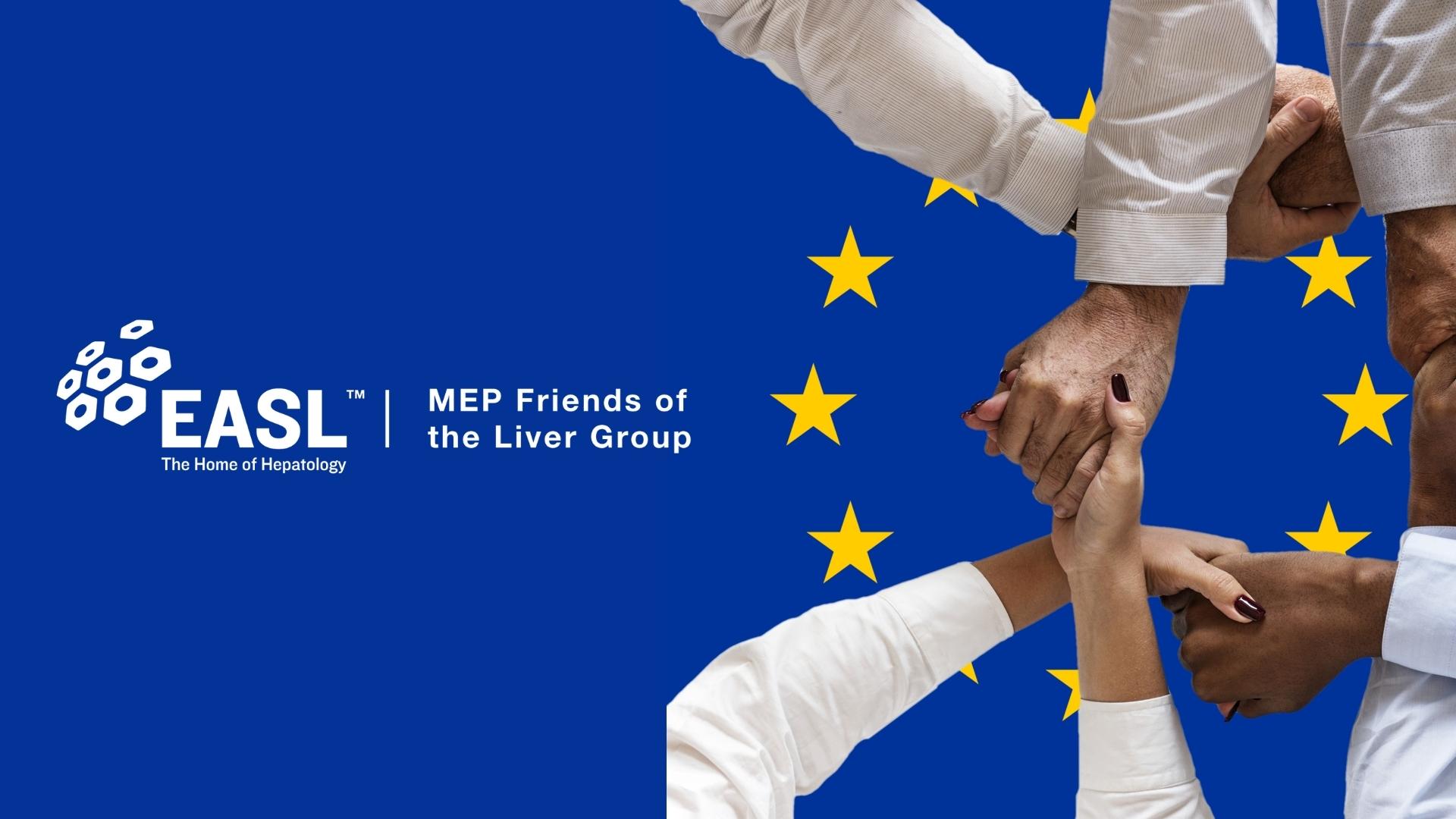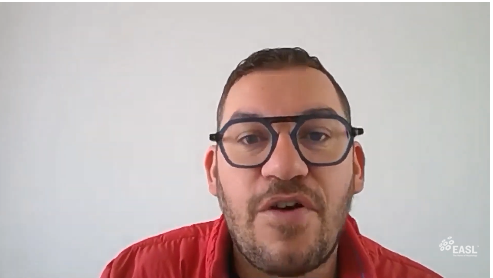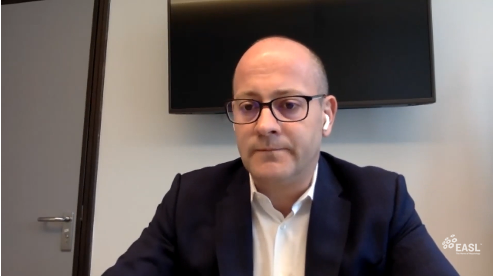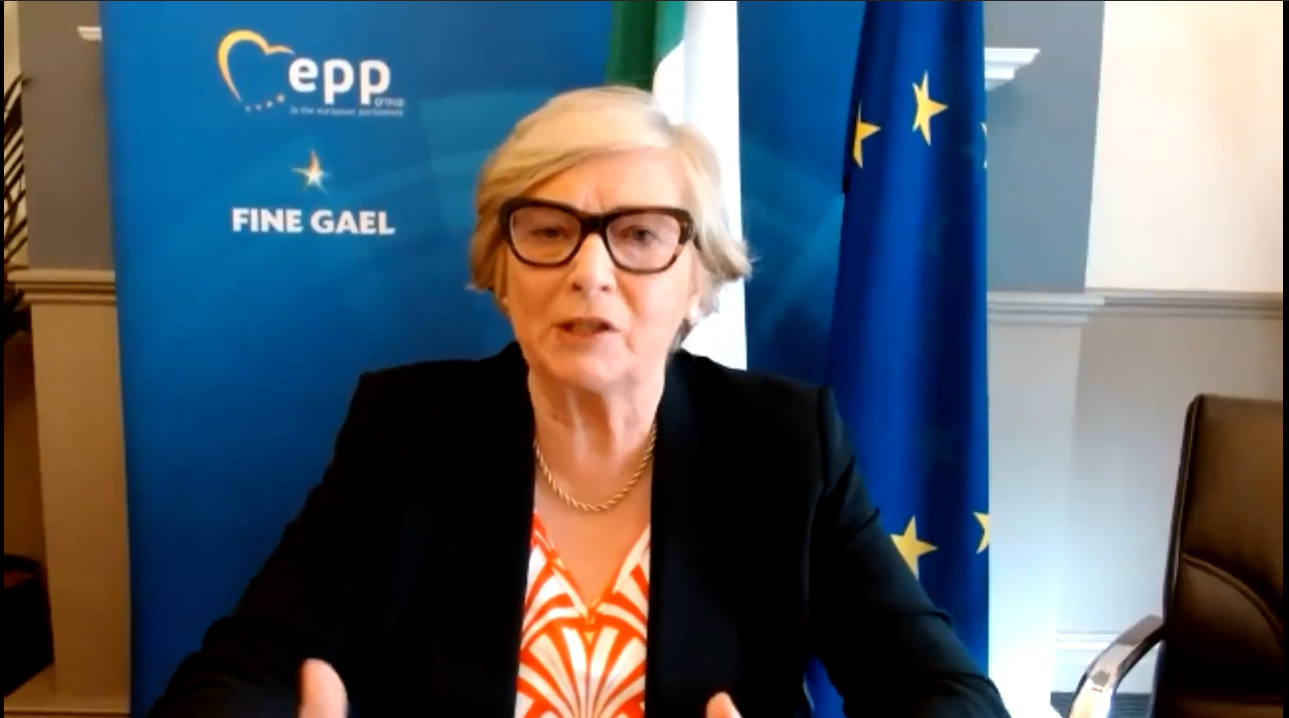MEP Friends of the Liver Group relaunches to highlight the liver in the European Union parliamentary setting

25 March 2022
On 15 March 2022, the Members of Parliament (MEP) Friends of the Liver Group (hereafter “the Group”), coordinated by EASL was relaunched online. To mark the occasion, a webinar was held to discuss the increasing burden of liver diseases in Europe and promoting much needed prevention, care, and targeted screening for higher-risk groups for liver cancer.
About the Group
The Group, initiated in 2015, was relaunched with ten new MEPs who are currently at the European Parliament. Although only MEPs may serve on this structure, the Group looks forward to collaborating and communicating with diverse stakeholders.
The five core priorities of the group are: prevention, early detection, and care of liver cancer; alcohol consumption and healthy diet; non-alcoholic fatty liver disease (NAFLD); viral hepatitis; and the fight against stigma.
View all members of the group
EASL’s role in fighting stigma and inequality, leveraging policy to trigger change
With EASL coordinating the Group, the event was opened by Prof. Thomas Berg, EASL Secretary General, and concluded by Prof. Maria Buti, EASL EU Policy Councillor, and Nicola Bedlington, Special Advisor to the European Patients’ Forum, served masterfully as moderator. Speakers included MEP members of the Group, leading hepatologists, civil society, and EASL leadership. Prof. Berg stated:
Liver health is a window on the general health challenges of Europe in the 21st century. The liver is the power station in our body, reflecting our metabolic health, thus taking care of the liver can prevent a range of other diseases.
Topics covered included the increasing burden of liver diseases in Europe; the prestigious EASL-Lancet Commission and resulting report; the role of the European Centre for Disease Prevention and Control (ECDC) in non-communicable liver diseases in Europe. A case study of the French approach to integrating high-risk groups in national strategies was outlined, and access to care and surveillance for highly stigmatised groups discussed.
Risk factors and the potential of policy
MEP Cyrus Engerer, Co-Chair of the Group, spoke on health inequities at EU level. He mentioned that the management of risk factors for liver diseases, such as alcohol consumption, obesity, and intravenous drug use, reflect behaviours and conditions that are the consequences of unhealthy environments and social inequities.
MEP Engerer underlined that a considerable focus should be placed on underserved and marginalised communities, who are at high risk of developing chronic liver diseases. He further declared that one way to tackle inequities is to address stigma. Stigma has a major impact on liver diseases in Europe, as it leads to discrimination, reduction in healthcare-seeking behaviour, and reduced allocation of resources. All of these result in poor clinical outcomes.
The EASL–Lancet Liver Commission as a foundation for the future of liver care
Prof. Tom Hemming Karlsen, Co-Chair of the EASL–Lancet Commission, introduced the prestigious Commission report, the result of three years of in-depth investigation and analysis. The report, titled Protecting the next generation of Europeans against liver disease complications and premature mortality, was published in December 2021. Prof. Hemming Karlsen explained that the work of the Commission was carried out by a truly multidisciplinary team, involving liver doctors, diabetologists, infectious diseases specialists, nutritionists, and patients. Prof. Hemming Karlsen said:
One critical point of the EASL–Lancet Liver Commission analysis is that deaths related to liver disease typically occur at younger ages, making liver disease now the second most important cause of working years lost in Europe, after ischaemic heart disease. One example is alcohol-related liver disease, where deaths occur approximately 20 years earlier when compared to other lifestyle-related diseases such as type 2 diabetes or lung cancer.
At the launch of the report, Ursula von der Leyen, President of the European Commission, highlighted that almost 300,000 people in Europe die per year prematurely, due to problems of the liver. Many of them could have lived longer and healthier lives, because today, in most European countries, there is good access to secondary care.
The liver in the context of actions to tackle non-communicable diseases
One key area of action is the surveillance of non-communicable diseases (NCDs) in Europe. MEP Radan Kanev, ENVI Committee, and EPP shadow reporter on the legislative proposal to extend the mandate of the European Centre for Disease Prevention and Control (ECDC), brought up the surveillance of NCDs at EU level. This initiative is urging the EU to put in place systems to monitor NCDs and consolidate scientific knowledge. Such a monitoring system could be achieved by extending the ECDC’s mandate, to have it include NCDs.
For NCDs, because EU-level public health actions rely largely on soft coordination, related efforts are fairly fragmented. Extending the ECDC mandate to cover surveillance of NCDs would facilitate the sharing and consolidation of scientific knowledge about disease prevalence and causes. This would, in turn, aid in measuring and monitoring health inequalities, both identified as major EU challenges.
Promoting prevention, care, and targeted screening for liver cancer in high-risk groups
The second part of the discussion touched upon the promotion, care, and targeted screening for high-risk groups for liver cancer. Prof. Peter Jepsen, member of the EASL Liver Cancer Task Force, noted that 50,000 Europeans are diagnosed with liver cancer every year. In 1990, the number was half, around 25,000. He said:
The number of Europeans who die from liver cancer is almost the same [as 30 years ago]. Almost everybody who is diagnosed with liver cancer, dies from liver cancer.
This is due to a population that is both ageing and living with a high (and increasing) prevalence of chronic liver diseases. As much as 80–90% of people diagnosed with liver cancer already have an underlying chronic liver disease. Preventing liver cancer means preventing chronic liver diseases and vice versa.
Drawing from France’s approach to screening at-risk groups
Prof. Pierre Nahon, EASL liver cancer expert, presented France’s approach to screening specific at-risks groups for liver cancer. These at-risks groups include migrants, people who inject drugs, and people with excessive alcohol consumption. The French strategy is all about reducing inequities in access to health, and the key challenge for doctors is to bring these groups of people into the healthcare system to treat and prevent chronic liver diseases.
Prof. Nahon underlined that when countries, such as in the case of France, provide social security, they tend to also lower the burden of inequity of access to care. Some French hospitals collaborate with associations to help get these patients to the doctor and into early detection programmes.
Grassroots and capacity-building strategies to promote care for all, including those afflicted by conflict in Ukraine
Roberto Pérez Gayo, Policy Officer of Correlation European Harm Reduction Network (C-EHRN), shared some activities by C-EHRN on monitoring and data collection to assess the use and impact of national strategies and of guidelines for access to testing and treatments. C-EHRN has put in place capacity-building activities to improve the continuum of care, and to implement community-based and community-led programmes for access to treatments and screening.
As regards the conflict in Ukraine, Mx Gayo mentioned that efforts are being made through an emergency system of harm reduction response. Both individuals in Ukraine and those fleeing conflict are being helped by members of the C-EHRN network. Because Ukraine has the second highest prevalence of hepatitis in Europe, with a 70% of prevalence among the 340,000 estimated people who use drugs in the country, the war is a threat to progresses made.
Europe’s Beating Cancer Plan, alcohol, the liver, and gender
MEP Frances Fitzgerald underlined the timely and great interest in the European Parliament for health issues and expressed her disappointment and concern as regards the Europe’s Beating Cancer Plan and alcohol-related issues. She said:
I was very disappointed when we launched the cancer plan regarding the discussion on alcohol. […] I was stumped at the level of discussion in relation to alcohol and how uninformed it was and how predominant the alcohol industry and lobbying was. … I found that the economic issues on the alcohol lobbying industry predominated in much of the discussion. This really highlighted how much work we have to do in relation to this issue at European level and in parliament.
Furthermore, MEP Fitzgerald highlighted the issue of gender as women are more vulnerable for some alcohol-related issues and there is much more we can do about women.
Conclusion, liver care in the context of conflict
Prof. Maria Buti, EASL’s Policy Councillor, thanked the MEPs, the hepatology communities, and patients supporting this initiative for attending the event. She highlighted EASL´s European mission: in terms of population health, measures being implemented to support hepatology communities in Ukraine, and efforts underway to support colleagues in countries bordering Ukraine in their responsibilities towards refugees with liver diseases.




